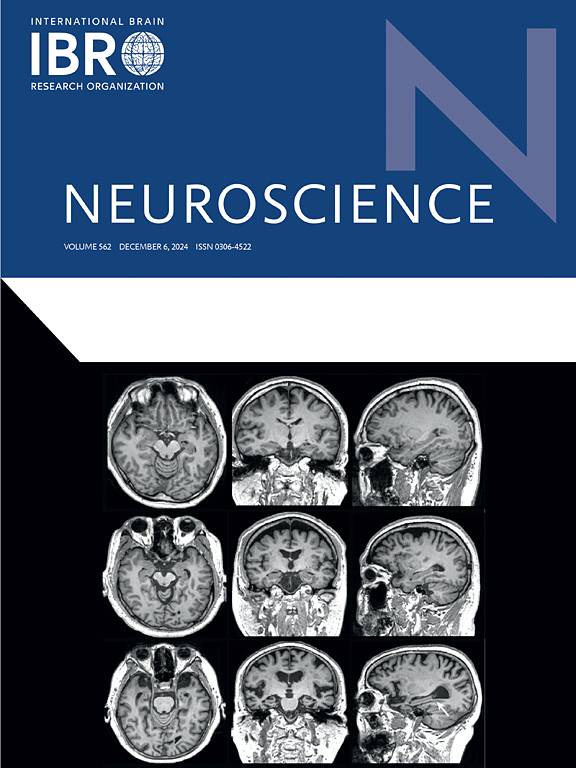释放肠道微生物群预防和治疗与衰老有关的神经系统疾病的治疗潜力。
IF 2.9
3区 医学
Q2 NEUROSCIENCES
引用次数: 0
摘要
数十亿的微生物栖息在人类的肠道中,维持着整体的健康。最近的研究揭示了通过微生物-肠-脑轴(MGBA)大脑和肠道微生物群之间复杂的相互作用及其对神经退行性疾病(ndd)的影响。肠道菌群的改变,即肠道生态失调,与几种ndd的发生和发展有关。研究表明,肠道微生物群可能是改善认知健康和减少大脑衰老特征的可行目标。包括下丘脑-垂体-肾上腺轴刺激、神经递质释放中断、全系统炎症以及肠道和血脑屏障通透性增加在内的许多途径将肠道生态失调与神经系统疾病联系起来。肠道菌群产生的代谢物影响影响大脑功能的神经过程。临床干预取决于了解有益和有害肠道微生物群之间平衡的能力,因为它既影响神经变性也影响神经保护。本文综述了肠道菌群及其代谢物在脑老化和神经系统疾病发展中的重要性。此外,我们还探讨了肠道微生物群对年龄相关性ndd的可能治疗作用。这篇综述强调了连接肠道和大脑的各种途径,确定了几个重要的领域,在这些领域中,基于肠道微生物群的干预可能为与年龄相关的ndd提供可能的解决方案。此外,益生元和益生菌被认为是缓解肠道生态失调的间接原因的有效替代品。这些治疗干预措施有望在改善生态失调和ndd方面发挥重要作用,为进一步的研究铺平道路。本文章由计算机程序翻译,如有差异,请以英文原文为准。

Unlocking the therapeutic potential of gut microbiota for preventing and treating aging-related neurological disorders
Billions of microorganisms inhabit the human gut and maintain overall health. Recent research has revealed the intricate interaction between the brain and gut microbiota through the microbiota-gut-brain axis (MGBA) and its effect on neurodegenerative disorders (NDDs). Alterations in the gut microbiota, known as gut dysbiosis, are linked to the development and progression of several NDDs. Studies suggest that the gut microbiota may be a viable target for improving cognitive health and reducing hallmarks of brain aging. Numerous pathways including hypothalamic–pituitary–adrenal axis stimulation, neurotransmitter release disruption, system-wide inflammation, and increased intestinal and blood–brain barrier permeability connect gut dysbiosis to neurological conditions. Metabolites produced by the gut microbiota influence neural processes that affect brain function. Clinical interventions depend on the capacity to understand the equilibrium between beneficial and detrimental gut microbiota, as it affects both neurodegeneration and neuroprotection. The importance of the gut microbiota and its metabolites during brain aging and the development of neurological disorders is summarized in this review. Moreover, we explored the possible therapeutic effects of the gut microbiota on age-related NDDs. Highlighting various pathways that connect the gut and the brain, this review identifies several important domains where gut microbiota-based interventions could offer possible solutions for age-related NDDs. Furthermore, prebiotics and probiotics are discussed as effective alternatives for mitigating indirect causes of gut dysbiosis. These therapeutic interventions are poised to play a significant role in improving dysbiosis and NDDs, paving the way for further research.
求助全文
通过发布文献求助,成功后即可免费获取论文全文。
去求助
来源期刊

Neuroscience
医学-神经科学
CiteScore
6.20
自引率
0.00%
发文量
394
审稿时长
52 days
期刊介绍:
Neuroscience publishes papers describing the results of original research on any aspect of the scientific study of the nervous system. Any paper, however short, will be considered for publication provided that it reports significant, new and carefully confirmed findings with full experimental details.
 求助内容:
求助内容: 应助结果提醒方式:
应助结果提醒方式:


